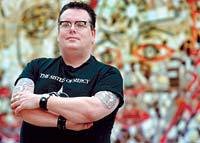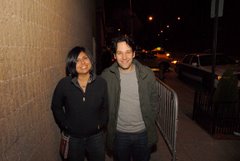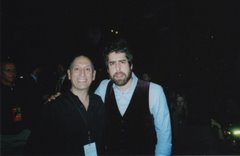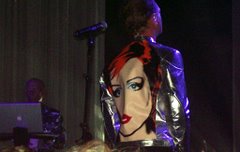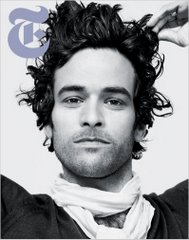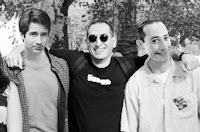Judy Garland and The Beatles Redux
 MUSIC Popular music styles may change over the years but well-written songs last a long time. Judy Garland and The Beatles were huge in their day and the recent rerecordings I've been listening to are totally satisfying and, like Garland sang, I find them "spinning round in my brain like the bubbles in a glass of champagne."
MUSIC Popular music styles may change over the years but well-written songs last a long time. Judy Garland and The Beatles were huge in their day and the recent rerecordings I've been listening to are totally satisfying and, like Garland sang, I find them "spinning round in my brain like the bubbles in a glass of champagne."
Despite all of her ups and downs, Garland's voice was strong and she popularized countless standards. Her legendary concert at Carnegie Hall in April 1961 showcased many of them and was a career highlight.
Singer-songwriter Rufus Wainwright recreated the entire concert several times and his 2006 Carnegie Hall performance Rufus Does Judy at Carnegie Hall is available on CD. (His live show at the London Palladium is available on DVD.) Though his singing style and vocal quality are not the same as Garland's, Wainwright is quite the showman and easily carries off songs like "San Francisco", "Zing! Went the Strings of My Heart!" and "That's Entertainment". Several slower songs particularly lend themselves to Wainwright's wailing style like "Do It Again", "A Foggy Day", "If Love Were All" and "How Long Has This Been Going On". 
I've usually heard "Come Rain or Come Shine" by Harold Arlen and Johnny Mercer sung sweetly and in a moderate tempo. But Wainwright flawlessly executes Garland's version that starts a little more up-tempo and transitions to an almost manic frenzy. It drives me crazy and is absolutely my favorite version.
A faithful recreation of the cha-cha sounding version of the 1938 song "You Go to My Head" by J. Fred Coots and Haven Gillespie has catchy and festive lyrics that have hooked me. And Wainwright includes little details as when he sings midway "…and I forgot the god darn words…" reproducing the Garland recording, exactly the way she did.
He enlists familial help from sister Martha Wainwright on “Stormy Weather,” and mother Kate McGarrigle on “Over the Rainbow”. Garland's daughter Lorna Luft appears on “After You've Gone.”
Though at time theatrical, Rufus Does Judy at Carnegie Hall is unlike the revival of a well known musical, like The Sound of Music, but proves how timeless good music can be. The variety of composers Garland used were popular in the first half of the 20th century making way for four fabulous dudes from Liverpool to take over and change popular music and rock and roll in the latter half.
While the orchestrations are very similar to the original Carnegie Hall production, many of the arrangements of songs by John Lennon, Paul McCartney and George Harrison on the Across the Universe soundtrack are new and maintain the integrity of the original compositions. The movie's storyline may be light but the music is as solid as it should be.
This 2-disc deluxe compilation features, among others actors, Jim Sturgess and Even Rachel Wood as the central love interest in the film and therefore sing a bulk of the songs. Rocking tunes "Hold Me Tight" and "It Won't Be Long" have a relaxed feeling, which Wood carries off just as easily as she handles the sweet yet slightly slowed-down versions of "If I Fell" and "Blackbird". But it is Sturgess' soothing voice that makes the biggest impression overall lending a more personal tone on "All My Loving", an intimacy to "Something" and even making "Revolution" sounding sexy. T.V. Carpio adds an aching urgency to "I Want to Hold Your Hand" while Dana Fuchs appropriately belts out the songs "Don't Let Me Down" and "Why Don't We Do It in the Road" but blends nicely with the other voices in "Dear Prudence". (She must have been perfect as Janis Joplin in the Off Broadway show Love, Janis.) Bono, Eddie Izzard and Joe Cocker show up but it's the lead actors that are worth listening to.
T.V. Carpio adds an aching urgency to "I Want to Hold Your Hand" while Dana Fuchs appropriately belts out the songs "Don't Let Me Down" and "Why Don't We Do It in the Road" but blends nicely with the other voices in "Dear Prudence". (She must have been perfect as Janis Joplin in the Off Broadway show Love, Janis.) Bono, Eddie Izzard and Joe Cocker show up but it's the lead actors that are worth listening to.











